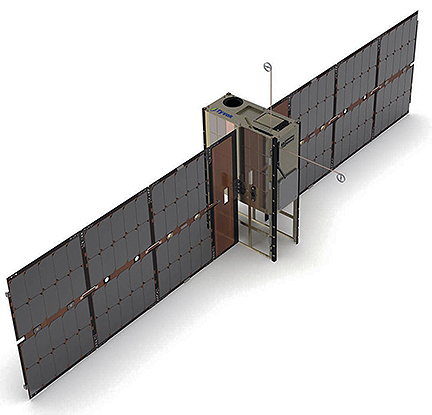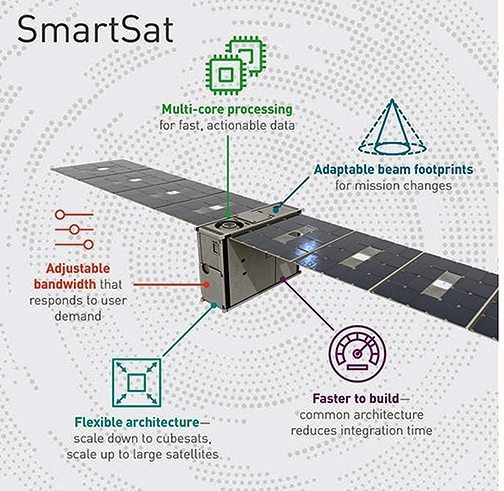
A new era of space-based computing is now being tested on-orbit that will enable artificial intelligence (AI), data analytics, cloud networking and advanced satellite communications (SATCOM) in a new software-defined architecture.

Artistic rendition of Tyvak’s 6U smallsat platform.
Image is courtesy of the company.
Recently, Lockheed Martin (NYSE: LMT) launched the Pony Express 1 mission as a hosted payload on Tyvak-0129, a next-generation Tyvak 6U smallsat.
Pony Express 1, an example of rapid prototyping, was developed, built and integrated in nine months, and was funded completely by Lockheed Martin Research and Development funding. This orbital proving ground is validating payload hardware and software, and is packed with new technology that fits into a satellite the size of a shoebox. Some of the key technologies being flight-tested include:
- HiveStar™ software validates advanced adaptive mesh communications between satellites, shared processing capabilities and can take advantage of sensors aboard other smart satellites to customize missions in new ways previously difficult to achieve in space.
- A software-defined radio that allows for high-bandwidth hosting of multiple RF applications, store-and-forward RF collection, data compression, digital signal processing and waveform transmission.
- 3D-printed wideband antenna housing developed by Lockheed Martin’s Advanced Research Technology Center.

Pony Express 1 is a dual-use payload that enables mesh networks in space through HiveStar™ and a second function that tests space to ground remote sensing. Future research missions this year, like Pony Express 2, will further advance cloud networking concepts among satellites, as well as validating Lockheed Martin’s SmartSat™ software-defined satellite architecture which enables streamlined hosting of flexible mission apps.
This mission consists of two, 12U cubesats with faster, more capable ultra-scale processors that unlock in-orbit data analytics and artificial intelligence. Equipped with miniaturized cross-link and precision timing, Pony Express 2 is a trailblazer for autonomous teaming in space and true cloud networking.
Rick Ambrose, EVP of Lockheed Martin Space, said that early on-orbit data shows Pony Express 1 is performing its important pathfinding mission very well. Lockheed Martin’s HiveStar™ technology on board will give the firm’s customers unparalleled speed, resiliency and flexibility for their changing mission needs by unlocking even greater processing power in space. This is the first of several rapid, self-funded experiments demonstrating our ability to systematically accelerate our customers’ speed to mission while reducing risk from new technologies.
